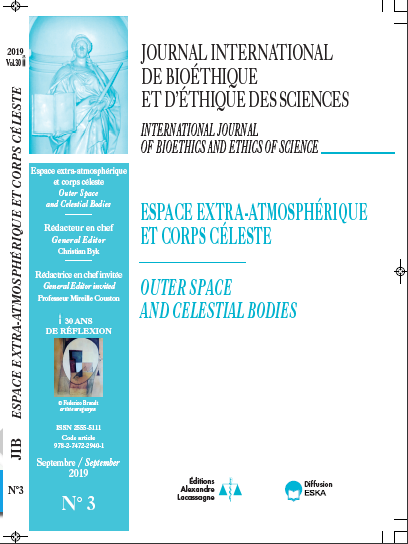CHAPTER 3: THE STATUS OF OUTER SPACE AND CELESTIAL BODIES
DOI:
https://doi.org/10.54695/jib.30.03.3517Abstract
In order to give some meaning to our subject it is necessary to envisage the notion of status not as a legal conceptual label defining space and the celestial bodies as such, but as all the rules forming the legal regime for space and celestial bodies. Moreover, we have to put into perspective the significance of the subject, essentially because the existing rules apply not to space and celestial bodies but to the human activities that take place there. In fact the very first space treaty is entitled ‘Treaty on principles governing the activities of states in the exploration and use ofouter space, including the moon and other celestial bodies’3. Space law is therefore a functional law and not a statutary law, which explains the pragmatic nature of the great principles to be found in it, including the principle of freedom. This freedom is broad, covering all sorts of activities, including exploi-tation. The latter point is, however, a polemical one. So it would be better to look at it more specifically after drawing up the general picture of free use of outer space and celestial bodies







